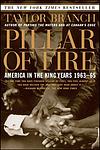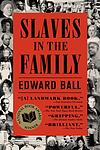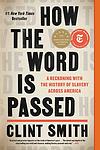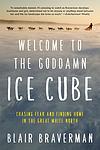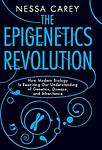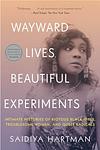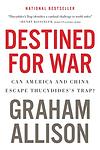The Greatest "Nonfiction" Books Since 1990
Click to learn how this list is calculated.
This list represents a comprehensive and trusted collection of the greatest books. Developed through a specialized algorithm, it brings together 286 'best of' book lists to form a definitive guide to the world's most acclaimed books. For those interested in how these books are chosen, additional details can be found on the rankings page.
Genres
Countries
Date Range
Reading Statistics
Click the button below to see how many of these books you've read!
Download
If you're interested in downloading this list as a CSV file for use in a spreadsheet application, you can easily do so by clicking the button below. Please note that to ensure a manageable file size and faster download, the CSV will include details for only the first 500 books.
Download-
801. Pillar Of Fire by Taylor Branch
"Pillar of Fire" is the second volume in a comprehensive trilogy that explores America's civil rights struggle during the mid-20th century. This installment focuses on the period between 1963 and 1965, a pivotal time marked by profound social and political upheaval. The narrative delves into key events and figures of the era, including the rise of the Black Power movement, the Birmingham church bombing, and the leadership of Martin Luther King Jr. Through meticulous research and detailed storytelling, the book captures the intensity and emotion of the fight for civil rights, offering insights into both the major achievements and the painful setbacks of the movement.
-
802. Slaves In The Family by Edward Ball
"Slaves in the Family" is a non-fiction book that explores the deep and complex history of slavery in America through the personal journey of the author, who delves into his own family's past. The narrative reveals the author's ancestors were prominent slaveholders in the South, and he confronts this painful heritage by tracing the descendants of the enslaved people his family once owned. Through meticulous research and interviews, the book weaves together the stories of black and white families, uncovering the shared history and enduring impacts of slavery on both groups. The work is a profound examination of guilt, responsibility, memory, and reconciliation in the context of America's racial history.
-
803. Kaddish by Leon Wieseltier
"Kaddish" is a profound exploration of grief, tradition, and spirituality, centered around the author's year-long journey of reciting the Kaddish, the Jewish prayer for the dead, following the passing of his father. The book delves deeply into the origins, history, and meaning of the prayer, while also reflecting on the broader themes of faith, identity, and the challenges of adhering to religious practice in the modern world. Through this personal and philosophical narrative, the author seeks understanding and solace in the ancient rituals of his faith, confronting his own sorrow and the complexities of the human condition.
-
804. A Walk In The Woods by Bill Bryson
The book is a humorous and insightful account of the author's attempt to walk the Appalachian Trail, one of America's longest and most challenging continuous hiking paths. Alongside an eccentric old friend, the author embarks on a journey that introduces them to a series of memorable characters, natural wonders, and daunting physical challenges. Through witty narrative and personal reflection, the book explores the history and ecology of the trail, the concept of wilderness, and the author's own limits and quirks. It highlights both the beauty and the absurdity of undertaking such a monumental trek.
-
805. The Haunted Land by Tina Rosenberg
"The Haunted Land" is a compelling exploration of the aftermath of communism in Eastern Europe, specifically in the Czech Republic, Poland, and Germany. The book delves into the struggles of these nations as they grapple with their pasts under oppressive regimes, and their attempts to move forward towards democracy. The narrative also examines the moral dilemmas faced by these societies as they confront issues of justice, retribution, and memory.
-
806. Double Fold: Libraries and the Assault on Paper by Nicholson Baker
The book is a critical examination of the practice of libraries in the United States, which, in the name of preservation, have been systematically destroying original newspapers and books to replace them with microfilmed copies. The author argues that this process, far from saving the material, often results in the loss of valuable information and the tactile experience of reading. He also criticizes the library community for its uncritical acceptance of new technologies and its failure to question the implications of these practices.
-
807. How The Word Is Passed: A Reckoning With The History Of Slavery Across America by Clint Smith
"How The Word Is Passed" is a powerful and thought-provoking exploration of the legacy of slavery in America. Through a series of vivid and evocative essays, author Clint Smith takes readers on a journey across the United States, visiting sites that are deeply connected to the history of slavery and its aftermath. From Monticello to Angola Prison, Smith offers a nuanced and insightful look at the ways in which slavery has shaped our country and continues to impact our lives today. With a clear-eyed and compassionate approach, "How The Word Is Passed" is a must-read for anyone interested in understanding the complex and ongoing legacy of slavery in America.
-
808. On Juneteenth by Annette Gordon-Reed
"On Juneteenth" is a memoir by Pulitzer Prize-winning author Annette Gordon-Reed that explores the history and significance of Juneteenth, the holiday commemorating the end of slavery in the United States. Gordon-Reed reflects on her own experiences growing up in Texas and the ways in which Juneteenth has been celebrated and politicized over time. She also delves into the complex legacy of slavery and racism in America, offering a powerful and thought-provoking exploration of this important holiday and its ongoing relevance.
-
809. Craigslist Confessional by Helena Dea Bala
This book is a collection of raw, poignant personal stories curated from anonymous individuals who shared their deepest secrets and confessions with the author, who offered a nonjudgmental ear in a Craigslist ad. The narratives span a wide range of human experiences, from love and loss to addiction and redemption, providing a unique window into the complexities of the human condition. Each story serves as a testament to the power of listening and the cathartic impact of opening up to a stranger, revealing the profound connections that can be forged through the simple act of sharing one's truth.
-
810. The Weir Dest People In The World by Joseph Patrick Henrich, Korey Jackson, Joseph Henrich
This book presents a compelling argument that the Western Church's marriage and family policies, which emerged during the early Middle Ages, played a crucial role in fostering the development of Western societies. By promoting nuclear families, monogamy, and prohibiting incest and cousin marriage, these policies inadvertently led to the breakdown of kin-based institutions and the promotion of individualism, trust, and cooperation with strangers. The author, an interdisciplinary scholar, uses a wealth of historical and empirical data to show how these unique marriage and family norms contributed to the rise of impersonal markets, democratic governance, and innovation. This transformative shift, the book argues, is what set Western societies on a distinct path of development, characterized by peculiar psychology, behaviors, and social dynamics that have had profound global impacts.
-
811. The Routledge Handbook Of Panpsychism by William Seager
The book serves as a comprehensive guide to panpsychism, the philosophical view that consciousness is a fundamental and ubiquitous aspect of the physical world. It brings together contributions from leading scholars to explore various aspects of this theory, including its historical roots, its philosophical implications, and its compatibility with contemporary science. The handbook examines arguments for and against panpsychism, discusses its potential solutions to the mind-body problem, and considers its implications for our understanding of the nature of consciousness and the physical universe. This collection not only provides a detailed overview of current debates but also charts potential future directions for research in this area.
-
812. Lo Que No Tiene Nombre by Piedad Bonnett
The book is a poignant and deeply personal memoir that delves into the heart-wrenching experience of a mother grappling with her son's severe mental illness and eventual suicide. Through a raw and honest narrative, the author explores the complexities of her son's struggle with depression, the impact of his condition on their family, and the profound grief that follows his tragic death. The memoir serves as a meditation on loss, love, and the often misunderstood nature of mental health, offering a touching tribute to her son while also shedding light on the broader issues surrounding mental illness and the challenges faced by those who suffer from it and their loved ones.
-
813. Welcome To The Goddamn Ice Cube by Blair Braverman
The memoir chronicles the adventures and personal journey of a young woman who finds resilience and a sense of identity in the harsh and unforgiving landscapes of the Arctic. Through her experiences dogsledding in Norway and living in an Alaskan glacier town, she confronts the challenges of extreme cold and isolation while also grappling with her own past traumas. Her narrative weaves together tales of survival, the complexities of small-town dynamics, and the enduring allure of icy wildernesses, ultimately offering a meditation on the power of nature to both heal and test our limits.
-
814. The Epigenetics Revolution by Nessa Carey
"The Epigenetics Revolution" explores the fascinating field of epigenetics, which studies how external factors can influence gene expression without altering the DNA sequence itself. The book delves into how epigenetic changes can affect an organism's development, contribute to diseases like cancer, and potentially be passed down through generations. By examining cutting-edge research and its implications, the book reveals how understanding epigenetics could revolutionize medicine, agriculture, and even our understanding of evolution.
-
815. Brain On Fire by Susannah Cahalan
The book chronicles the harrowing experience of a young journalist who suddenly finds herself battling a rare and mysterious illness. Initially misdiagnosed with psychiatric disorders, her symptoms rapidly progress from paranoia to hallucinations and seizures. With her health deteriorating rapidly, it is only through the intervention of a dedicated doctor who finally identifies the true cause of her condition, an autoimmune disease called anti-NMDA receptor encephalitis. The memoir captures her terrifying descent into madness, her family's desperate quest for answers, and the life-saving diagnosis that eventually leads to her recovery.
-
816. Edge Of The Universe by Paul Halpern
"Edge of the Universe" explores the fascinating concepts and groundbreaking theories in cosmology that attempt to unravel the mysteries of the universe. The book delves into the origins and fate of the universe, discussing the Big Bang, the cosmic inflation, dark energy, and dark matter. It also examines the latest research and discoveries that challenge our understanding of the universe's boundaries, the potential multiverse, and the possibility of other dimensions. Through engaging explanations and insights, the book provides a comprehensive overview of our current understanding and the cutting-edge science that could redefine what we know about the cosmos.
-
817. Race After Technology by Ruha Benjamin
This book critically examines the intersection of technology and race, revealing how digital tools and platforms often perpetuate existing racial biases and inequalities. It delves into the concept of the "New Jim Code," where discriminatory designs are embedded in the architecture of various technologies, from automated decision-making systems to predictive policing algorithms. The author challenges the notion that technology is neutral, arguing that it often reinforces systemic discrimination, and calls for a more inclusive and equitable approach to tech development that actively confronts and dismantles these embedded prejudices.
-
818. Wayward Lives, Beautiful Experiments by Saidiya Hartman
The book examines the social and cultural history of African American women in the early twentieth century, particularly in New York and Philadelphia. It explores the ways in which these women defied conventional norms and constraints, creating new forms of intimacy, kinship, and freedom amidst the harsh realities of racism and sexism. Through a blend of historical research and imaginative reconstruction, the narrative delves into the intimate lives of young black women who sought to carve out a space for themselves, challenging the pathologized narratives that have often overshadowed their agency and innovation in the face of systemic oppression.
-
819. Trans by Juliet Jacques
"Trans" is a candid and poignant memoir that chronicles the personal journey of transitioning from male to female, exploring the complexities of gender identity and the challenges faced by transgender individuals. The author offers an intimate look into their experiences with gender dysphoria, the medical processes of transitioning, and the social implications of living as their true self. The narrative also delves into the broader cultural and political issues surrounding trans rights and representation, providing a nuanced perspective on the intersection of personal and political in the quest for authenticity and acceptance in society.
-
820. Leonardo Da Vinci by Walter Isaacson
This biography delves into the life of one of history's most fascinating figures, a man whose curiosity and unparalleled genius spanned across various fields such as art, science, engineering, and anatomy. Through a meticulous examination of thousands of pages from his notebooks and the exploration of his famous artworks, the book paints a vivid picture of Leonardo da Vinci's relentless pursuit of knowledge and his extraordinary ability to observe the world in ways no one else did. The narrative not only celebrates his well-known masterpieces but also highlights his countless uncompleted projects and his unique approach to merging science and art, revealing the complexities and contradictions of a man who sought to understand the universe in all its facets.
-
821. Memories Of The Great And The Good by Alistair Cooke
"Memories of the Great and the Good" offers a collection of insightful essays that reflect on the lives and legacies of various prominent figures from the 20th century. Through a series of vivid portraits, the book delves into the personal and professional lives of politicians, artists, and celebrities, revealing their human sides and the impacts they had on society and culture. The author, a seasoned journalist, draws from his rich experiences and encounters, providing readers with a deeper understanding of these influential individuals and the times in which they lived.
-
822. Capitalism Without Capital by Jonathan Haskel
This book delves into the modern economic shift towards an intangible asset-driven economy, distinguishing it from traditional, tangible asset-based systems. It explores how investments in intangible assets like design, branding, R&D, and software are overtaking physical assets in importance, fundamentally altering the landscape of business and economy. The authors analyze the unique challenges and opportunities this shift presents, including issues of economic measurement, policy-making, and the distribution of wealth. Through a comprehensive examination, the book provides insights into how the rise of intangible assets is reshaping capitalism, influencing everything from how companies operate to how economies are managed and grow.
-
823. Life 3.0 by Max Tegmark
This book explores the future of artificial intelligence (AI) and its impact on the fabric of human existence, proposing a framework for understanding the progression of life through the lens of technological evolution. It delves into the potential scenarios that could unfold as AI surpasses human intelligence, raising profound questions about consciousness, the role of humans in a world shared with advanced AI, and how society can navigate the ethical, political, and existential challenges this new era presents. The author encourages a proactive approach to designing and governing AI technologies, emphasizing the importance of aligning them with human values and interests to ensure a future where humanity can thrive alongside increasingly intelligent machines.
-
824. Energy And Civilization by Vaclav Smil
This book provides a comprehensive examination of the role that energy has played in the development of human societies, from the harnessing of fire by early humans to the complex energy grids of the 21st century. It explores how the transformation and consumption of energy have been pivotal in the advancement of civilizations, underpinning economic systems, technological progress, and the rise and fall of empires. The author meticulously analyzes the transition from muscle power to fossil fuels and renewable energy sources, highlighting the environmental and societal impacts of our growing energy demands. Through a detailed historical and scientific lens, the narrative underscores the critical importance of energy management in addressing current global challenges, advocating for a more sustainable and efficient future.
-
825. Destined For War by Graham Allison
This book examines the looming possibility of conflict between the United States and China through the lens of the "Thucydides's Trap," a term coined by the author to describe the inevitable tensions and potential wars that occur when a rising power threatens to displace an existing great power. Drawing from historical examples, the book explores how this dynamic has led to war in 12 out of 16 past cases and delves into the specific challenges and strategic decisions facing both the U.S. and China. It offers a detailed analysis of the military, economic, and political factors at play, while also proposing paths to avoid conflict and maintain global stability. Through a blend of historical insight and contemporary analysis, the book presents a compelling case for the two powers to navigate this dangerous period with caution and strategic foresight.
Reading Statistics
Click the button below to see how many of these books you've read!
Download
If you're interested in downloading this list as a CSV file for use in a spreadsheet application, you can easily do so by clicking the button below. Please note that to ensure a manageable file size and faster download, the CSV will include details for only the first 500 books.
Download